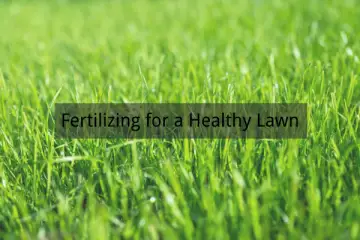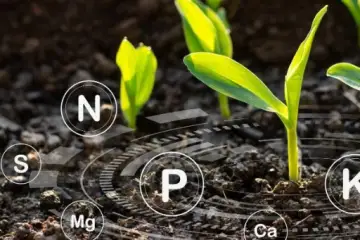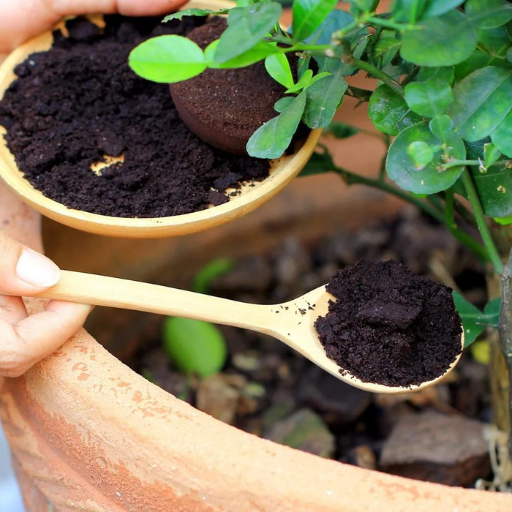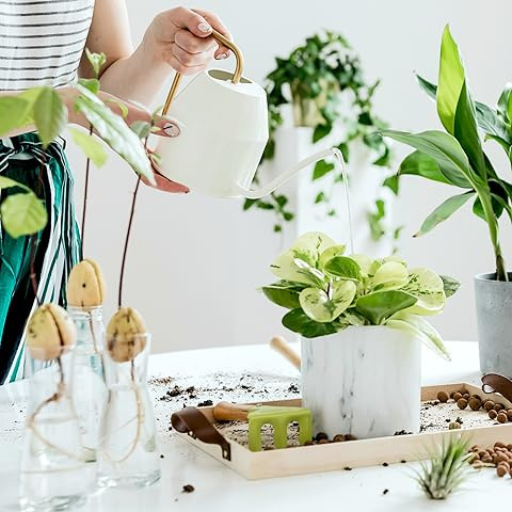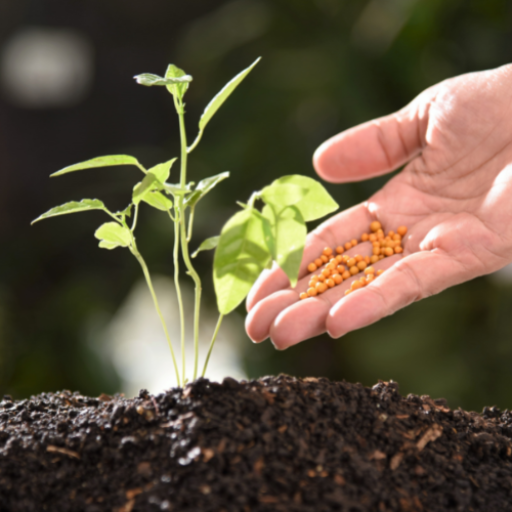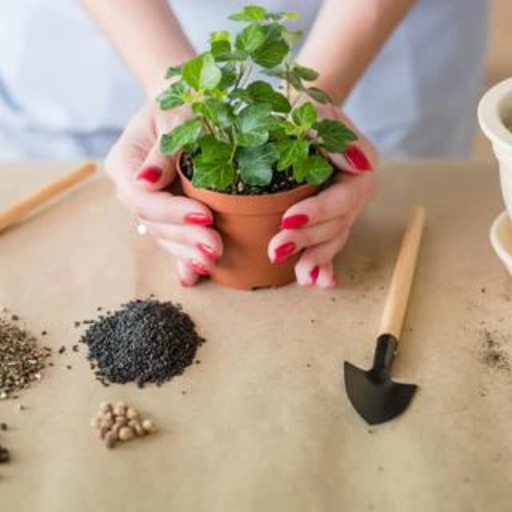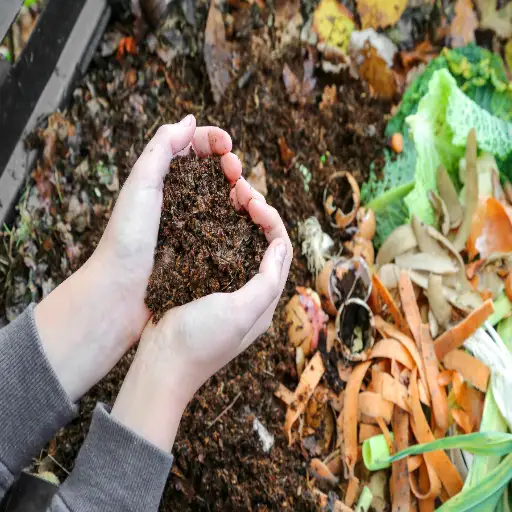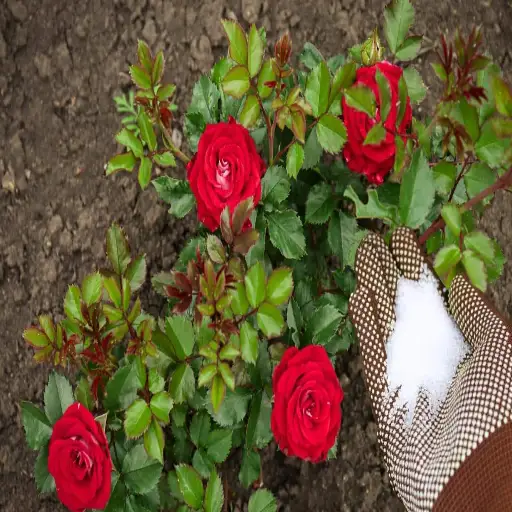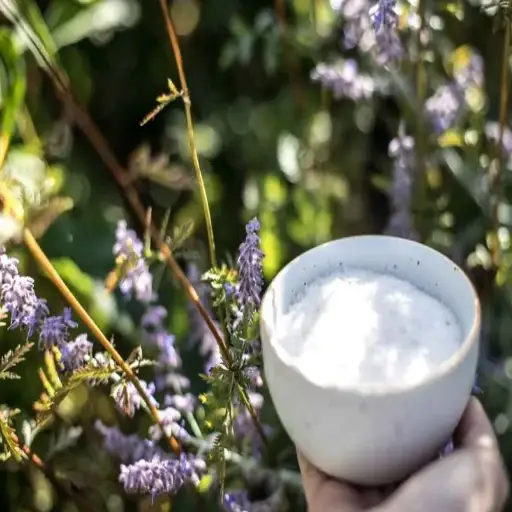Keeping indoor plants healthy and vibrant requires more than just regular watering and adequate sunlight. One crucial aspect often overlooked is the type of fertilizer used. In this blog, we will explore the benefits of choosing organic fertilizers for houseplants, ensuring they thrive in indoor environments. We’ll discuss the various types of organic fertilizers available, how to effectively apply them, and highlight some best practices for maintaining optimal plant health. Whether you are a seasoned plant enthusiast or just starting your indoor gardening journey, this guide will provide you with the essential knowledge to support the growth and wellbeing of your houseplants.
What is Organic Houseplant Fertilizer and Why Should You Use It?
What Makes a Fertilizer Organic?
Organic fertilizers come from natural sources like plant residues, compost, animal waste and other organic matter. They do not decompose on the soil as fast as synthetic fertilizers do but rather break down over time enriching it to aid in its sustainability. Additionally, they don’t contain any toxic substances or chemicals thus making them safer for both plants and the environment. For instance, by using organic fertilizers, gardeners can promote soil structure, boost microbial activity and ensure adequate nutrients balance that support sound growth of plants which are strong and resistant.
Benefits of Using Organic Fertilizer for Indoor Plants
Organic fertilizers have numerous advantages when used in indoor plants hence being considered as a great approach to maintain their healthy state. One, they release nutrients slowly providing a consistent supply of all necessary nutrients over time. This way there is no risk of nutrient burn that can happen when using synthetic fertilizers since this is not an overnight thing but it happens gradually over some period of time Two; they help improve soil structure by enhancing its water-holding capacity and nutrient retention ability. This creates an environment where plant roots grow more stable, thereby leading to robust growth with greater resistance against stressors finally using organic fertilizer helps build living soils or soils rich in beneficial microorganisms. These organisms feed on decomposed organic matter releasing the essential elements into forms that may be easily utilized by the plants. The relationship between them allows healthier plants and sustainable indoor gardening practices.
Organic vs. Synthetic Fertilizers: Which is Better for Indoor Plants?
When deciding whether to select organic or synthetic fertilizers for indoor plants; each choice has its own advantages and disadvantages. Organics are obtained from natural sources in form of manure, bone meal or composts etc… Such kind releases nutrients such as Nitrogen (N), Phosphorous (P) Potassium (K) very slowly over time improving soil structure and promoting microbial activity thus giving plants long-term endurance. Also, they are eco-friendly and minimize the risk of chemical run-off or nutrient burn.
On the other hand, synthetic fertilizers are manufactured from chemical compounds and provide an immediate nutrient boost to plants. They provide specific nutrients that may be helpful in quickly correcting nutritional imbalances However, synthetic fertilizers may lead to salt build-up in soils which over time can kill plant’s roots as well as negatively impacting soil health.
In conclusion, the choice between organic and synthetic fertilizers depends on the gardener’s goals and the specific needs of their indoor plants. For those who aspire to better soil health without harming it in any way choosing organic fertilizer is always a good idea because it is sustainable in nature. In cases where quick results or exact ratios of nutrients are required, artificial manures would be more appropriate to use than organics. Another alternative could involve using both types at different moments especially when one wants to support overall plant health within his/her homestead.
How to Choose the Best Organic Fertilizer for Different Indoor Plants
Various Indoor Plants And All-Purpose Organic Fertilizers
For various indoor plants, it is important to select all-purpose organic fertilizers that can meet the nutrient requirements of different plant types. The following are some of the most recommended products by major gardening websites: Jobe’s Organics All-Purpose Fertilizer, LOYAL Organic Indoor Plant Food and Dr. Earth 707P Organic 8 Bud & Bloom Fertilizer.
Jobe’s Organics receives accolades for its balanced nutrient content as well as use of its proprietary Biozome blend which incorporates beneficial microorganisms to promote growth in plants. LOYAL Organic Indoor Plant Food is highly regarded due to its convenience; it comes as a liquid formula which can be easily absorbed by the plant leaving no residues behind. With natural ingredients, Dr. Earth 707P aims at healthy blooms and general plant health. These all-purpose organic fertilizers therefore do not only offer essential nutrients but also improve soil health for better long-term plant growth.
Flowering Plants’ Best Organic Fertilizers
The right organic fertilizer can make a big difference in blooming quality and overall health of flowering plants. According to leading comprehensive gardening websites’ recommendations, three organic fertilizers have always been rated highly:
LOYAL Organic Bloom Booster Flower Food – This fertilizer has enriched bio-tone microbes that focus on improving flower production while encouraging large vibrant blooms. By improving soil structure and promoting overall plant health.
EarthPods Premium Bloom Flower Plant Food – EarthPods are pre-measured capsules that are easy to use and highly effective when it comes to flowering promotion. They contain organic nutrients, humic & fulvic acids and beneficial soil microbes thus ensuring sustained nutrient release and healthy root growth.
Neptune’s Harvest Organic Fish & Seaweed Fertilizer – It combines fish emulsion with seaweed extracts hence having a balanced nutrient profile good for flowering purposes. It provides essential trace minerals plus natural growth hormones that boosts the plant’s resilience and bloom quality. Besides, it is in liquid form which makes sure it can be quickly absorbed by plants.
These fertilizers are praised for their use of natural ingredients, promoting flowering and overall contribution to the health and vitality of indoor flowering plants.
Specialized Organic Fertilizers for Cacti and Succulents
Picking organic fertilizer specialized for cacti and succulents is important as they have different nutritional needs. Here are three highly recommended specialized organic fertilizers according to top gardening websites:
Dr. Earth Exotic Blend Cactus & Succulent Fertilizer – This granular feed includes a blend of natural ingredients such as fishbone meal, fish meal, kelp flour, and beneficial soil microbes. It promotes strong root development and sustained growth, which meets the low-nutrient requirements of these types of plants.
LOYAL Organic Cactus Plant Food –LO YAL’s formula comes with a balanced combination of nutrients enhanced with Bio-tone microbes to ensure slow-release nourishments. It helps in developing healthy roots while also promoting vibrant plant rearing without posing dangers like over-fertilization.
Liqui-Dirt Nano Powder All-Purpose Organic Fertilizer – Even though it is an all-purpose variety Liqui-Dirt’s water-soluble concentrate is gentle enough for cacti and succulents. This contains more than 18 minerals and nutrients that guarantee proper feeding even as the delicate balance required by these species remains intact.
These fertilizers are recommended because they offer mild well-balanced formulations meant especially for lower nutritional requirements and preference on soils when growing cacti and succulents hence ensuring healthy growth as well as resilience.
Organic Fertilizers for Herbs
Choosing the best organic fertilizers for herbs involves considering formulations that enhance flavor, aroma, and overall plant health. Based on the latest recommendations from leading gardening experts, here are three top-rated organic fertilizers suitable for herbs:
- LOYAL Organic Garden-Tone Herb and Vegetable Fertilizer – This granulated fertilizer contains a blend of natural ingredients, including feather meal, poultry manure, and greensand. It works by providing balanced, slow-release nutrients that support healthy root development and vigorous growth, ensuring herbs are lush and flavorful.
- Dr. Earth Home Grown Organic & Natural Herb Fertilizer – Infused with probiotics and Mycorrhizae, this organic mix promotes nutrient uptake and soil health. Made from fishbone meal, kelp meal, and other natural components, it boosts the vitality of herbs, helping them to thrive in various growing conditions.
- Jobe’s Organics Herb Fertilizer Spikes – Convenient and easy to use, these fertilizer spikes deliver essential nutrients directly to the root zone. The formulation includes Jobe’s Biozome, a unique and proprietary blend of beneficial microorganisms that improve soil quality and help herbs grow stronger and more productive.
These organic fertilizers are selected for their ability to provide the essential nutrients required by herbs to develop superior flavors, robust growth, and enhanced resistance to pests and diseases.
How Often Should You Fertilize Indoor Plants with Organic Fertilizer?
Determining the Right Fertilization Schedule for Different Plant Species
Understanding specific requirements of each plant species is a key to find the right fertilization schedule for indoor plants using organic fertilizer. Most houseplants require fertilizing during their active growing period that usually extends from spring till early fall. For instance, when it comes to leafy green plants such as ferns and spider plants, biweekly application of a balanced organic fertilizer will often do. On the other hand flowering plants like orchids and African violets may demand a watered down weekly feed that complements their blooming cycles. Succulents and cacti, meanwhile are much easier to maintain since they need only one monthly dose of fertilizer throughout their growing season. The frequency should be changed depending on how the plant is responding; if it shows signs of lankiness or leaves look pale in color, then probably more nourishment is required since nutrients are lacking inside them. A change in color of leaves into yellow and reduced rate of growth implies that over-fertilization has occurred leading to poor flowering.
Signs Your Plants Need Fertilizing
Knowing when your plants need fertilizing is important because it helps ensure they receive enough nutrients to grow optimally and stay healthy. Some common indications that you may want to consider while determining whether your plants require nourishment include:
- Slow Growth or Stunted Development: If your plants are growing slower than normal or appear stunted, there could be an insufficient supply of essential minerals.
- Yellowing Leaves: Leaf chlorosis caused by lack of nutrient often results in green veins but yellow leaves.
- Pale or Light Green Leaves: When leaf color starts fading across all parts without any mottling arrangements, nitrogen deficiency can be suspected.
- Dropping Leaves: Loss of leaves abruptly might mean lack of some crucial nutrients.
- Poor Flowering or Fruiting: Lack of blooming or fruit formation may signal phosphorus shortage in the soil.
- Weak or Spindly Stems: Weak and bending stems which can be easily broken also mean that fertilizers have been supplied in inadequate amounts.
- Brown Leaf Tips and Edges: When the leaves have brown tips and edges, a wrong nutrient balance is assumed by the plant.
By watching out for these symptoms, you will be able to adjust your fertilizer application accordingly so as to provide what is required at a particular time.
How to Apply Organic Fertilizer to Indoor Plants?
Mixing Organic Liquid Fertilizers
When you’re mixing organic liquid fertilizers for indoor plants, it is essential to obey the recommended application rates set by the manufacturer. Ordinarily, you will dilute the concentrate with water at a rate say 1 oz of fertilizer per gallon of water. Make sure that you mix solution properly so as to distribute nutrients equally through it. When applying, water around the base of your plants and not onto leaves which could cause burn on them. It’s best to apply such a fertilizer every two or four weeks while adjusting accordingly for each specific plant based on their reaction to the regime. And always remember to use clean containers and tools as this will prevent contamination.
Using Slow-release Organic Fertilizers
Slow-release organic fertilizers are great for indoor plants because they gradually feed them over a long period of time. To use these types:
- Identify The Right Type: Choose either pellets or granules that suit your particular type of plant. A few good examples include composted manure and bone meal or specific indoor plant mixes.
- Amount applied: Use what is recommended by the manufacturer concerning quantity in grams or kilos according to product label directions. You may use just a handful in case you have ordinary pot sizes.
- Incorporate into Soil: As the fertilizer decomposes, gently combine with top 1-2 inches of soil ensuring even distribution of nutrients in them towards root zone where nourishment is needed.
- Watering: Give enough water after application so that nutrient release can start happening upon contact with moisture in soils. Consistently watering ensures correct use of slow release fertilizer.
- Reapplication Timing: Generally speaking, slow-release fertilizers last at least several months depending on products range from every 3-4 months depending on how your plants respond may require repeating process if necessary.
Thus one should keep his/her potted inside domestic crops balanced and continuously provided with food elements through usage of the mentioned techniques.
Fertilizing Techniques for Potted Indoor Plants
When you want to fertilize your indoor plants that are grown in pots, then there are fertilization techniques that you should know if you want them to be healthier and grow well. Below are some of these:
- Selecting the Right Fertilizer: Choose a balanced water-soluble fertilizer with an equal ratio of nitrogen, phosphorous and potassium (N-P-K) like 20-20-20 mix. This ensures that plants receive all nutrients required.
- Dilution And Frequency: When applying every watering, dilute the fertilizer to about one-fourth its strength. Instead, apply full-strength at 4-6 weeks interval especially during growing season.
- Application Method: Pour diluted fertilizer solution directly on soil not foliage so as to avoid leaf burning. Make sure that soil is wet prior to application in order for them to acquire nutrients.
- Seasonal Adjustments: There should be decreased or stopped feeding during dormant winters when growth rates slow down and less nutrients are needed by plants.
These are some of the most important fertilizing techniques which will help your potted indoor plants to have strong growth, beautiful leaves and healthy roots.
What Are Common Problems When Using Organic Fertilizers for Houseplants?
Danger of Over-Fertilization and How to Avoid it
Too much application of fertilizers can be a major problem for houseplants which may lead to several problems such as nutrient burn, root damage or stunted growth. I usually avoid over-fertilization by strictly following instructions indicated on the package. In most cases, I start with diluted solutions that are normally half the recommended strength and apply them less frequently especially during periods when my plants do not show any sign of active growth. Moreover, I watch closely for any changes in their looks like developing yellow leaves or salt buildup on the soil surface indicating an overdose of nutrients. With these factors being observed and properly managed through adjusting how often I apply fertilizers, I am able to keep my houseplants healthy and prevent over-fertilization dangers.
Detecting Nutrient Deficiencies in House Plants
Identifying nutrient deficiencies in indoor plants includes looking out for specific symptoms that indicate lack of important mineral elements. For instance, nitrogen deficiency is characterized by yellowing leaves while potassium starvation is indicated through pale or scorched leaf edges. Small distorted new leaves are often caused by calcium shortage whereas reddish or purple hues on the undersides of leaves point towards phosphorus deficiency. To address this concern, it becomes important that I use balanced all-purpose fertilizer while periodically monitoring soil pH levels because unbalanced pH hampers nutrient absorption process from the soil solution. By observing these signs very carefully and making appropriate amendments to rectify them effectively, managing nutrient deficiencies among my indoor plants should be easy for me.
How to Get Rid Of Foul Smells Coming Out Of Organic Fertilizers
With regard to overcoming bad smells from organic fertilizers there are few things I do practically though. The first thing is to make sure that there is enough ventilation where this kind of manure has been spread as this will help in diffusion as well as dilution of the smells responsible for its unpleasantness. Another way to minimize the release of foul smells is by using covered compost bins or sealed containers for storing organic materials. Besides, when preparing compost, I sometimes introduce carbon-rich materials like straw or dried leaves in it since this helps to balance nitrogen levels and reduce smell. In case a particular fertilizer always have strong odors, I can try other organic options or go for pre-packaged ones that are less smelly. Thus, following these methods will enable me to control and reduce unpleasant smells from organic fertilizers.
Frequently Asked Questions (FAQs)
Q: How frequently should I fertilize my indoor houseplants?
A: Generally, every 4-6 weeks while in the growing season (spring/summer) is good for indoor houseplants. When they are dormant in fall and winter, do not fertilize frequently or not at all.
Q: Is compost a suitable choice for organic plant fertilizer?
A: Compost is indeed an ideal organic plant fertilizer. By enriching potting soil with essential nutrients and improving soil structure, it enables healthy root growth and overall plant health.
Q: Can I use hydroponic systems’ organic plant food?
A: Some organic plant foods are intended for hydroponic systems but it’s important to check the label to ensure compatibility. Not all organic fertilizers are best suited for hydroponics so opt for one that is specifically designed to be used this way.
Q: Are organic plant fertilizers safe on edible plants?
A: Yes, generally speaking, organic plant fertilizers can be safely used on edible plants. Make sure that the fertilizer you choose is OMRI-listed which means it adheres to organic standards and can be used on crops intended for consumption.
Q: In the past I have used only chemical manure; but how do I now switch over to natural manure?
A: One way of moving over to natural manure involves gradually replacing artificial ones with naturally occurring ones. Start using compost or balanced natural fertilizer mixtures in your growing medium. Then as time goes by, reduce chemical application while following instructions on the labels of natural products.
Q: Can earthworm casting be considered an organic fertilizer for my indoor houseplants?
A: Earth worm castings make very good indoor houseplant’s organic fertilizers because they are rich in nutrients as well as having beneficial microorganisms promoting both soil fertility and health of plants.

